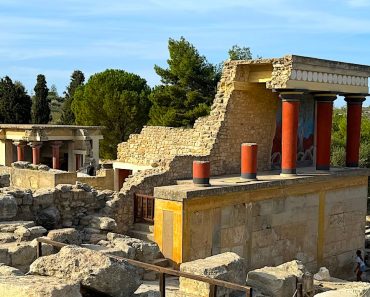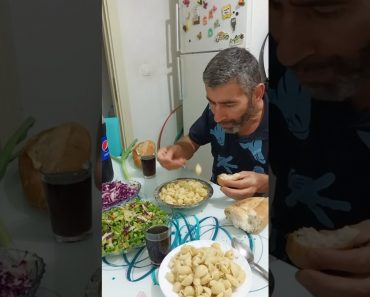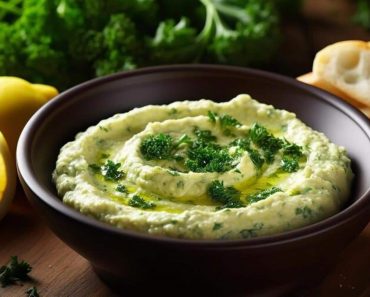
When one hears about “the longest word,” whatever language it is, absurd adjectives or ancient names of forgotten princes come to mind. Surely not a recipe; but as often happens, the Greek language surprises us once again.
In fact, the longest Greek word in question is:
λεπαδοτεμαχοσελαχογαλεοκρανιολειψανοδριμυποτριμμματοσιλφιοτυρομελιτοκατακεχυμενοκιχλεπικοσσυφοφατοπεριστεραλεκτρυνοπτοκεφαλιοκιγκλοπελειολαγῳοσιραιοβαφητραγανοπτερυγών.
At first glance, it almost looks as if someone enjoyed taking the spaces out of a meaningful sentence; in reality, however, it is a single word. Nevertheless, there is someone who had fun in creating it almost as a joke, and it is the legendary Aristophanes.
The greatest comedy playwright in history
Aristophanes, the poet from Athens who was born in 450 BCE, is still regarded as the greatest exponent of ancient comedy. His ability to introduce satire and politics in a comical and light-hearted context, has immortalized him and he has been repeatedly quoted.
Although the birth of the comedy genre is still attributed to the Sicilian authors Formides and Epicarmus, the Athenian playwright remains the principal exponent of the genre and a source of inspiration for the entire modern theatre world.
Possibly the most important aspect that accentuates Aristophanes’ value, is that most of his works have been delivered into our hands intact, despite the 2,500 years that separate us from his existence.
This, unlike the lost texts of so many authors of the time, has solidified his position by creating almost a monopoly of Aristophanes’ comedies.
The longest Greek word
As already mentioned, Aristophanes invented the longest word in Greek literature and language. But where did he use it?
One of the Greek playwright’s last plays is “Ecclesiazusae” or “‘The Assemblywomen”. First staged in 392 BCE, the play tells of a secret revolt by the Athenian women to enter parliament and scale back the man-centered democracy. The revolt was quickly successful, largely due to the surrender of men who accepted the reversal of roles, given the staggering political situation in the city-state.
The new laws were revolutionary and created problems for everyone, especially due to the reforms in the sexual sphere. Any man could unite with a beautiful woman, as long as he had first spent his feelings with at least three ugly women.
Comedy and satire combined sublimely to create comic situations.
How does the story end?
With a banquet.
A classic way of settling matters in ancient Greece, where everyone is invited: men, women, beautiful and ugly.
It is in the very last scene that they are all called back to the banquet to enjoy some delicious… λεπαδοτεμαχοσελαχογαλεοκρανιολειψανοδριμυποτριμματοσιλφιοτυρομελιτοκατακεχυμενοκιχλεπικοσσυφοφατοπεριστεραλεκτρυνοπτοκεφαλιοκιγκλοπελειολαγῳοσιραιοβαφητραγανοπτερυγών.
The meaning behind it
The reality is that Aristophanes makes this word unique in two ways; in this imaginary recipe he introduces us not only to so many disparate ingredients but also, within this preparation, he describes all the delicacies of the banquet.
Let us together analyze every component of the longest Greek word:
- λεπαδο> λοπάς (lopàs)= wide dish
- τέμαχος (temaxos)= slice/portion of fish
- σέλαχο (sèlaxo)= fish of the order batoidea, probably a Mediterranean ray
- γαλέο (galéo)= school shark, very common in the Mediterranean and has always been present in Greek cuisine
- κράνιον/λείψανον (crànion/lìpsanon)= head and bones, of seafood in this case, most likely indicating the presence of crabs in the recipe
- δριμύς/υπότριμμα (drimìs/ipòtrima)= intense and grated, probably indicating some powdered seasoning with a strong taste
- σίλφιον (sìlfion)= extinct plant from the Cyrenaica area with powerful healing properties widely used in antiquity
- τυρομελιτό (tiromelitò)= denoting a concoction with honey and cheese
- κατακεχυμένο (katakeximèno)= poured over, indicating that the previous sauce seasoned the food
- κίχλε (kìxle)= thrushes, small birds much consumed in antiquity, especially in Roman times
- επί (epì)= on top of
- κόσσυφο (kòsifo) / φάττα (fàta) / περιστέρα (peristèra)= types of wild pigeons
- αλεκτρυών (alektriòn)= term for rooster
- οπτός (optòs)= cooked
- κεφάλιο (kefàlio)= head, probably referring to the rooster in the recipe
- κίγκλιο (kìglio)= the white-throated dipper, or also called as “European dipper,” which has always been strongly present on the Greek peninsula
- πέλειο (pèlio)= the dove
- λαγώο (lagòo)= rabbit
- σιραίο (sirèo)= a natural syrup extracted from pomegranate
- βαφή (vafì)= with the meaning of paint, probably indicating the color that the dish took deriving from the red of the pomegranate syrup
- τραγανό (traganò)= a term indicating crunchiness
- πτερύγων (pterigòn)= wings and flaps of a chicken or rooster
Wow, what an etymological marvel!
Is it possible to recreate the ancient recipe?
Many theories prevail about the dishes Aristophanes mentions and how they were perceived by him. Not having any breaks or commas, it is hard to associate the seasoning with the correct raw material. However, we could try and recreate the dishes shared by the actors at the end of the play.
Assuming two different recipes we would have:
A dish made from slices of stingray fish and school shark, with the addition of various parts of the crab, all topped with a honey-cheese sauce, spicy powdered spices and chopped silphium.
Finally, one could find a mixture of roasted game such as thrushes, doves, breeding pigeons, rabbit and roosters with their heads, all topped with pomegranate syrup sauce.
All to be accompanied by crispy chicken wings.
The Greek language and culture surprises and intrigues, as well as gifting parallels between our lives and ancient ones.
Whether yesterday or today, any conflict, political or personal, can be resolved by sharing good food.
Why? Because after all, we are… what we used to eat.






